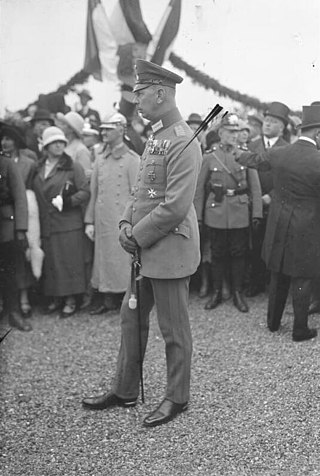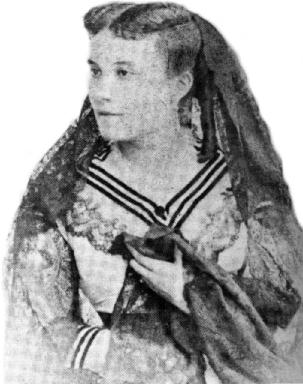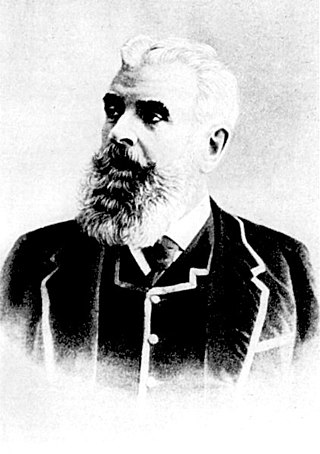People
- Rupert Neudeck, German humanitarian
- Ruth Neudeck, German SS supervisor at death camps and war criminal
Neudeck may refer to:

Friedrich Wilhelm August Heinrich Ferdinand von Steuben, also referred to as Baron von Steuben, was a Prussian military officer who played a leading role in the American Revolutionary War by reforming the Continental Army into a disciplined and professional fighting force. His contributions marked a significant improvement in the performance of U.S. troops, and he is consequently regarded as one of the fathers of the United States Army.

The Junkers were members of the landed nobility in Prussia. They owned great estates that were maintained and worked by peasants with few rights. These estates often lay in the countryside outside of major cities or towns. They were an important factor in Prussian and, after 1871, German military, political and diplomatic leadership. The most famous Junker was Chancellor Otto von Bismarck. Bismarck held power in Germany from 1871 to 1890 as Chancellor of the German Empire. He was removed from power by Kaiser Wilhelm II.
The Uckermark concentration camp was a small German concentration camp for young women near the Ravensbrück concentration camp in Fürstenberg/Havel, Germany and then an "emergency" extermination camp.

Oskar Wilhelm Robert Paul Ludwig Hellmuth von Beneckendorff und von Hindenburg was a German Generalleutnant. The son and aide-de-camp to Generalfeldmarschall and Reich President Paul von Hindenburg had considerable influence on the appointment of Adolf Hitler as German chancellor in January 1933.

Carl Fedor Eduard Herbert von Bose was head of the press division of the Vice Chancellery (Reichsvizekanzlei) in Germany under Vice Chancellor Franz von Papen. A conservative opponent of the Nazi regime, Bose was murdered during the Night of the Long Knives in the summer of 1934.

Lothar Späth was a German politician of the CDU.
Eastern Aid (Osthilfe) was a policy of the German Government of the Weimar Republic (1919–33) to give financial support from Government funds to bankrupt estates in East Prussia.

Esther Lachmann was the most famous of the 19th-century French courtesans. A notable investor and architecture patron, and a collector of jewels, she had a personality so hard-bitten that she was described as the "one great courtesan who appears to have had no redeeming feature". Count Horace de Viel-Castel, a society chronicler, called her "the queen of kept women, the sovereign of her race".

Świerklaniec is a village in Tarnowskie Góry County, in the Silesian Voivodeship of southwestern Poland. Formerly, from 1975 to 1998, Świerklaniec was a part of the Katowice Voivodeship.

Guido, Prince Henckel von Donnersmarck, previously Count Guido Henckel von Donnersmarck, was a German nobleman, industrial magnate, member of the House of Henckel von Donnersmarck and one of the richest men of his time. He was married in his first marriage to the famed French courtesan Esther Lachmann, known as La Païva, of Russian Jewish origin.

Rupert Neudeck was a journalist who later in life expanded into humanitarian work, especially with refugees. He started as a correspondent for Deutschlandfunk, a German public broadcaster. Later, he focused on assisting those fleeing conflict, and assisted thousands of refugees from Vietnam in the late 1970s. Neudeck was a winner of numerous awards, including the Theodor Heuss Medal, the Bruno Kreisky Prize for Services to Human Rights, the Erich Kaestner Award and the Walter Dirks Award, and was co-founder of both the Cap Anamur and Green Helmets humanitarian organizations.

Franz Anton Bustelli was a Swiss-born German modeller for the Bavarian Nymphenburg Porcelain Manufactory from 1754 to his death in 1763. He is widely regarded as the finest modeller of porcelain in the Rococo style: "if the art of European porcelain finds its most perfect expression in the rococo style, so the style finds its most perfect expression in the work of Bustelli".

Ogrodzieniec is a village in the administrative district of Gmina Kisielice, within Iława County, Warmian-Masurian Voivodeship, in northern Poland.

Ruins of the Reich is a documentary series that traces the rise and fall of the Third Reich through its architecture. Written and directed by film maker R. J. Adams, the film's "then and now" format focuses on the primary sites that played key roles from Hitler's rise to his final days in his Berlin bunker.

The Brockdorff family is a Schleswig-Holsteiner old noble house that belonged to German and Danish nobility.

Gertrud Wilhelmine von Beneckendorff und von Hindenburg was a German noblewoman and philanthropist. She was the wife of Paul von Hindenburg, the Chief of the German Army Command in the second half of the First World War and President of Germany from 1925.

Dark Eyes is a 1951 German drama film directed by Géza von Bolváry and starring Cornell Borchers, Will Quadflieg, and Angelika Hauff. It was shot at the Spandau Studios in West Berlin. The film's sets were designed by the art directors Mathias Matthies and Ellen Schmidt.
Niederlauterstein is a village in Saxony which has been incorporated into the town of Marienberg in the district Erzgebirgskreis since 1996.

Neudeck Palace was the residence of the aristrocratic Henckel von Donnersmarck family in Upper Silesia. The palace complex and park was one of the largest and most magnificent in the German Empire and was popularly known as Little Versailles or Upper Silesian Versailles. It is located around two kilometers south-east of the town of Neudeck in the Tarnogórski Góry County in Poland.